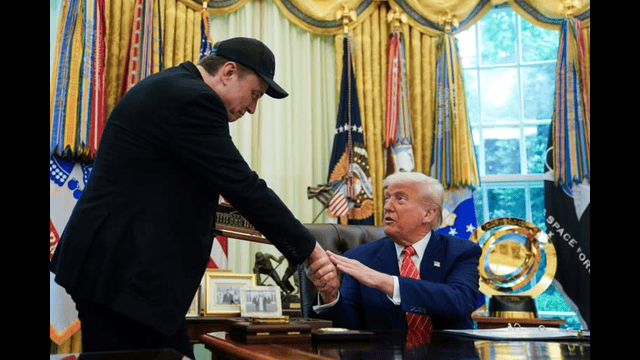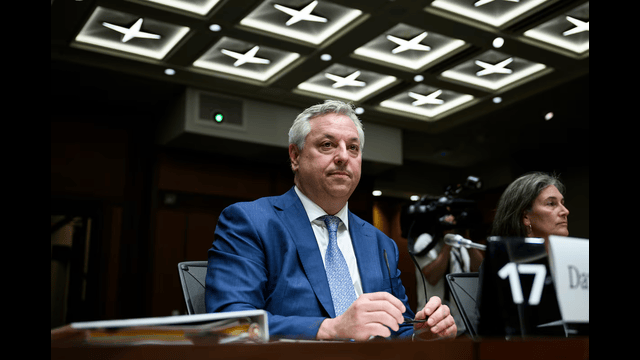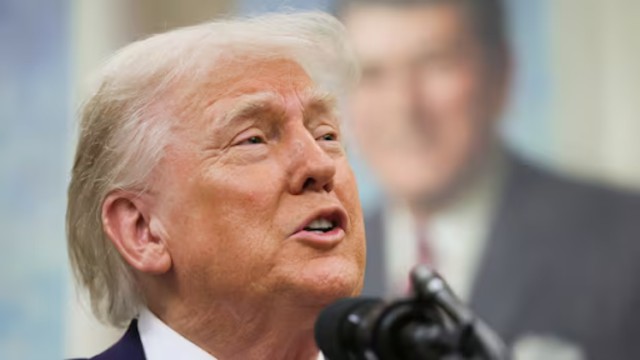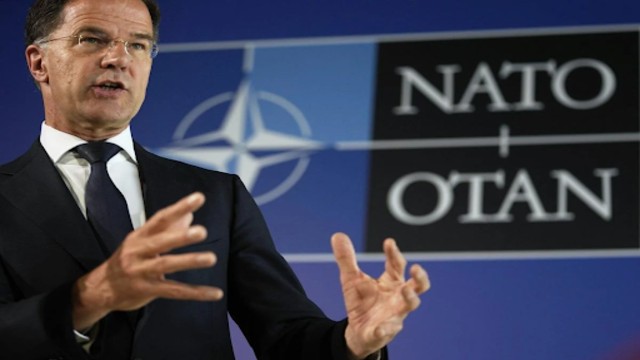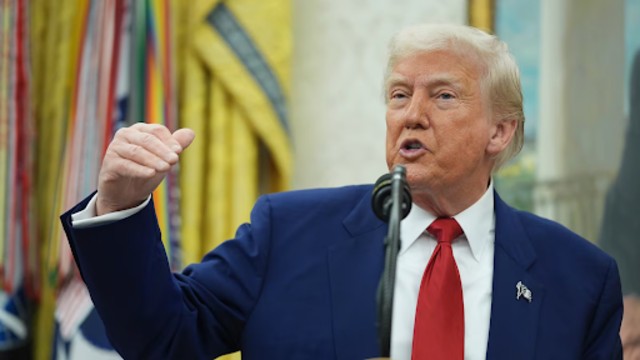
Trump’s Tariff Playbook Hits a Wall as federal court blocks it. President Donald Trump speaks during a swearing in ceremony for interim U.S. Attorney General for the District of Columbia Jeanine Pirro, Wednesday, May 28, 2025, in Washington. (AP Photo)
Former President Donald Trump’s sweeping global tariff agenda has suffered a major defeat in the US court. On Wednesday, a federal court blocked both his “Liberation Day” duties and fentanyl-related tariffs on Canada and Mexico. The ruling cast serious doubt on Trump’s legal basis for invoking emergency powers to impose such broad trade measures.
Judges Say IEEPA Doesn’t Grant Unlimited Tariff Power
The U.S. Court of International Trade ruled that Trump overstepped by using the International Economic Emergency Powers Act (IEEPA) of 1977. The court made it clear: this law does not give a president the power to unilaterally impose tariffs on nearly every country. The three-judge panel deemed such an interpretation of the law unconstitutional and issued a nationwide block on the contested tariff orders.
White House Pushes Back, Cites National Emergency
The Trump administration isn’t backing down. A White House spokesperson, Kush Desai, criticized the court’s decision, saying unelected judges shouldn't interfere with how the president handles national emergencies. He insisted Trump remains committed to protecting American interests through executive authority.
Unprecedented Use of Emergency Powers for Tariffs
Before Trump, no U.S. president had ever used IEEPA to impose tariffs. But in March, he declared a national emergency at the Canadian border, citing fentanyl trafficking. He then levied broad duties on Canadian goods. Though some tariffs were paused for items covered under the Canada-U.S.-Mexico Agreement, the impact was immediate and disruptive.
Fentanyl Justification Fails in US Court
Ironically, government data show only a small amount of fentanyl is seized at the northern border. The court ruled the fentanyl-related tariffs weren’t tied to a legitimate threat, and thus were invalid under Trump’s own emergency declaration.
Trade War Escalates—Then Recoils
By April, Trump extended his tariff blitz to nearly every nation, claiming America’s trade deficits posed a national crisis. While he quickly reversed the harshest measures, a 10% blanket tariff stayed in place. Trump gave countries a 90-day window to strike new deals, warning that he would set rates unilaterally if they failed to comply.
Two Lawsuits, One Major Setback
The court ruling stemmed from two combined cases. One was filed by five small U.S. businesses. The other was led by 12 states, including New York, Illinois, and Oregon. Both challenged the president’s sweeping authority under IEEPA and focused specifically on the fentanyl and Liberation Day tariffs.
Legal Experts Call It a Clear Overreach
Legal scholar Ilya Somin, representing the small businesses, called Trump’s actions a “giant power grab.” He noted IEEPA doesn’t mention tariffs or duties, and that taxing authority lies with Congress. The court agreed, declaring the president’s move unconstitutional and outside the bounds of the statute.
Appeal to Court
While the ruling halts Trump’s broad tariff plans for now, the legal battle is far from over. The White House is expected to appeal. Somin said an amicus brief from Canada could be valuable in the next phase of litigation.
Canada still faces tariffs on steel, autos, and aluminum—imposed under a different statute from 1962. But Wednesday’s decision is a clear win for American businesses, constitutional checks and balances, and for Canada, too.



